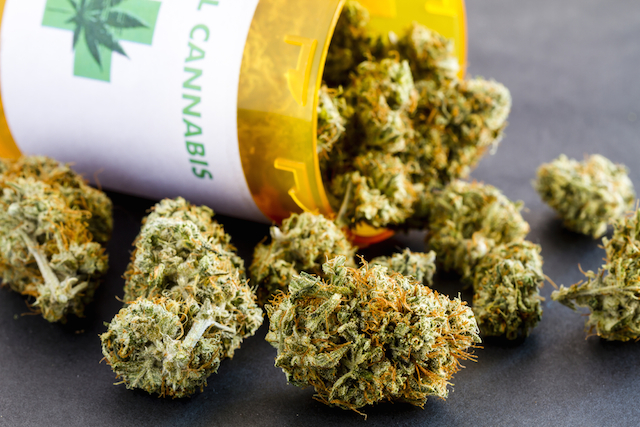Treasurer Seeks Clarification On 'Vague' Marijuana Policy From Trump Administration
By Stephen Gossett in News on Mar 8, 2017 6:00PM
Illinois Treasurer Michael Frerichs sent a letter on Monday asking the Trump administration to clarify its stance on medical marijuana.
The letter from Frerichs specifically references a comment by Sean Spicer on Feb. 23, when the White House spokesperson said he expects "greater enforcement" of federal laws that restrict marijuana use.
"Medical marijuana is not for everyone," Frerichs wrote. "If the Trump administration seeks greater enforcement, then it should clearly define what this means so hard-working people in Illinois can make informed decisions."
"Vague statements undermining medical marijuana violate commonsense and only serve to hurt the people who have pursued this treatment as a last resort," Frerichs added.
Spicer's comments last month prompted plans for a mass smoke out at the Capitol from pro-normalization/legalization activists.
Spicer last month did state that "there’s two distinct issues here: medical marijuana and recreational marijuana."
Spicer said in February, according to Vox:
"I think medical marijuana, I’ve said before, that the president understands the pain and suffering that many people go through, who are facing especially terminal diseases, and the comfort that some of these drugs, including medical marijuana, can bring to them... There’s a big difference between that and recreational marijuana. And I think that when you see something like the opioid addiction crisis blossoming in so many states around this country, the last thing we should be doing is encouraging people. There’s still a federal law that we need to abide by when it comes to recreational marijuana and other drugs of that nature."
But after previously sending a letter, in January, asking for clarification following Attorney General then-nominee Jeff Sessions' characterization of marijuana as "dangerous" and not receiving a reply, Frerichs is looking to shore up any doubt.
The state Treasurer argued that "greater enforcement" could result in closures of banks that work with medical-marijuana clients and could harm "legal cultivators, wholesalers and retailers" in Illinois. He said it is also unclear what legal trouble a doctor who prescribes medical marijuana could face if the administration were to chose a strict path.
After some initial opposition to expansion, Gov. Rauner agreed to a compromise last year that extends the state's Medical Cannabis Pilot Program to July 1, 2020. PTSD and terminal illness are among the program's qualifying conditions.
